Which crops are suitable for sprinkler irrigation| Types, components, advantages, uses
“Explore the world of crop diversity in sprinkler irrigation! Uncover which crops are suitable for sprinkler irrigation. Dive into the intricacies of watering different crops and optimize your garden’s growth. Find harmony between sprinkler irrigation and a variety of plants, transforming your garden into a thriving oasis. Discover the art of nurturing crops with sprinklers, ensuring a bountiful harvest and a flourishing garden symphony.”
Introduction:
Sprinkler irrigation stands as a pivotal method in modern agriculture, revolutionizing the way we nurture our crops. Its significance lies not just in the technique itself but also in the comprehensive understanding of its components, advantages, and crops are suitable for sprinkler irrigation..
What is sprinkler irrigation:
Sprinkler irrigation, a form of overhead irrigation, involves the application of water through a system of pipes and nozzles, simulating natural rainfall. Its uniqueness lies in the ability to mimic rainfall patterns, offering a precise and controlled method of watering crops. This technique ensures optimal water usage, contributing to both conservation and productivity.
Which crops are suitable for sprinkler irrigation:
There are following crops are suitable for sprinkler irrigation,
Lettuce and Spinach:
The gentle rain-like showers they provide create the perfect ambiance for lettuce and spinach to flourish. It’s like a spa day for your greens.
Broccoli and Cauliflower:
These veggies are like the connoisseurs of even moisture. Sprinklers distribute water uniformly, ensuring each broccoli and cauliflower gets its fair share. It’s like having your very own hydration sommelier for your garden.
Strawberries and Blueberries:
For these berries, sprinklers are like their personal weather-makers. The delicate showers mimic the gentle rainforests they love, creating the ideal conditions for sweet and juicy harvests. It’s like a fruity paradise under the sprinkler mist!
Basil and Mint:
Herbs, those aromatic wonders, absolutely adore the sprinkler spa treatment. The even moisture and misty allure provided by sprinklers are like a wellness retreat for basil and mint. It’s the secret ingredient to their flavorful growth.
Types of sprinkler irrigation:
Rotary Sprinklers :
Rotary sprinkler spin and cover a large area gracefully, ensuring every plant gets its chance to shine. Perfect for those vast, open spaces where you want the water to waltz around.
Impact Sprinklers:
Impact sprinklers are like the percussionists of the irrigation orchestra. They create a drumroll effect, propelling water against a deflector and creating a rhythmic rainfall. Ideal for oddly shaped plots where precision is key.
Drip Irrigation:
It’s not your typical sprinkler; instead, it’s like a personal hydration plan for each plant. A slow, continuous drip that ensures no drop goes to waste.
Micro-Sprinklers:
Micro-sprinklers are the gentle misters, delicately showering your plants. Perfect for those dainty flowers or smaller patches where you want to create a misty, magical atmosphere.
Stationary Sprinklers:
These sprinklers are like vigilant guards stationed in one place. They cover a fixed area, making them ideal for smaller gardens or specific spots that need extra attention.
components of sprinkler irrigation
Pumps:
They work tirelessly, pumping water from its source through the pipes, ensuring a steady flow. It’s like the powerful engine behind a well-oiled machine.
Pipes:
These are your irrigation’s secret agents, quietly carrying water from the source to every nook and cranny of your garden. They’re the unsung heroes, ensuring each plant gets its share, like hidden veins pulsating life into your green haven.
Valves:
Valves act as the traffic controllers, regulating the water flow. They open and close strategically, directing water where it’s needed the most. They’re like the vigilant gatekeepers ensuring water efficiency in your garden oasis.
Sprinklers:
Sprinklers are the ones who sprinkle, spray, or mist water onto your plants with finesse. Each type has its own flair, from gentle misting to robust watering. They’re the performers, turning your garden into rain kissed paradise.
uses of sprinkler irrigation in agriculture:
Precision Watering for Crops:
Sprinklers aren’t just water-slingers; they’re the ultimate precision artists! They evenly distribute water across fields, ensuring each crop receives the hydration it needs. Think of them as the personalized caretakers for your plants.
Combatting Heat and Dust:
Besides their watering prowess, they’re also masters at keeping things cool. Their gentle misting isn’t just refreshing; it beats the heat and keeps dust away, creating an ideal environment for thriving crops.
Fertilizer Distribution Made Easy:
Sprinklers aren’t shy about multitasking. They also double up as nutrient distributors! Farmers use them to evenly spread fertilizers, providing a balanced diet for plants. It’s like serving a nutritious meal to every crop.
Shielding Crops from Frost:
When frost threatens, sprinklers turn into protective shields. They spray water, forming a protective ice layer, guarding crops from frost damage. It’s like wrapping your plants in a cozy blanket during a chilly night.
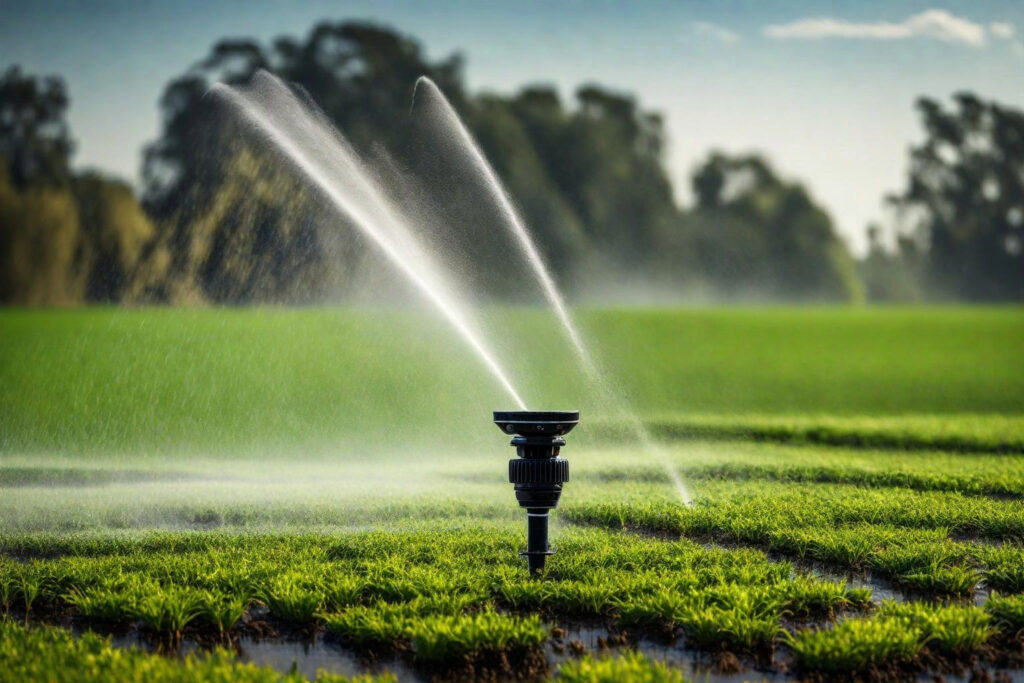
advantages of sprinkler irrigation in agriculture:
Efficient Water Management:
They precisely sprinkle water where it’s needed, minimizing wastage and ensuring optimal water use. It’s like having a water-savvy assistant taking care of hydration!
Time-Saving Marvels:
They automate the watering process, freeing up valuable time for farmers to focus on other essential tasks. It’s like having an efficient helper tending to your crops.
Guardians Against Soil Erosion:
Sprinklers do more than just water; they protect your soil! By showering water gently, they prevent soil erosion, ensuring your land remains fertile and intact. They’re like your soil’s protective shield.
Uniform Growth for Crops:
They deliver water evenly across fields, promoting uniform growth for all crops. It’s like hosting a growth party where every plant gets an equal chance to thrive.
Conclusion:
In the grand finale of this garden symphony, we’ve uncovered the rhythmic dance between sprinkler irrigation and a variety of crops are suitable for sprinkler irrigation. Each plant, from leafy greens to fruity delights and aromatic herbs, has its own unique steps in this watery waltz. Sprinklers emerge not merely as water dispensers but as partners in nurturing a flourishing garden. This knowledge transforms gardening from a task to an art, where the harmonious partnership between water and plants orchestrates a vibrant and fruitful spectacle.

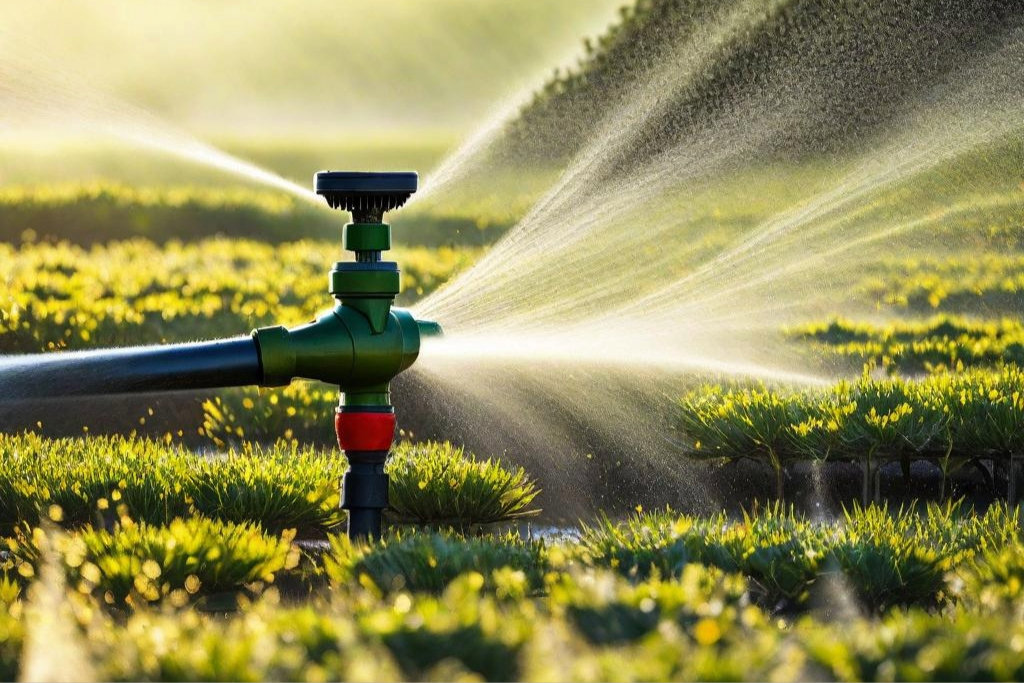
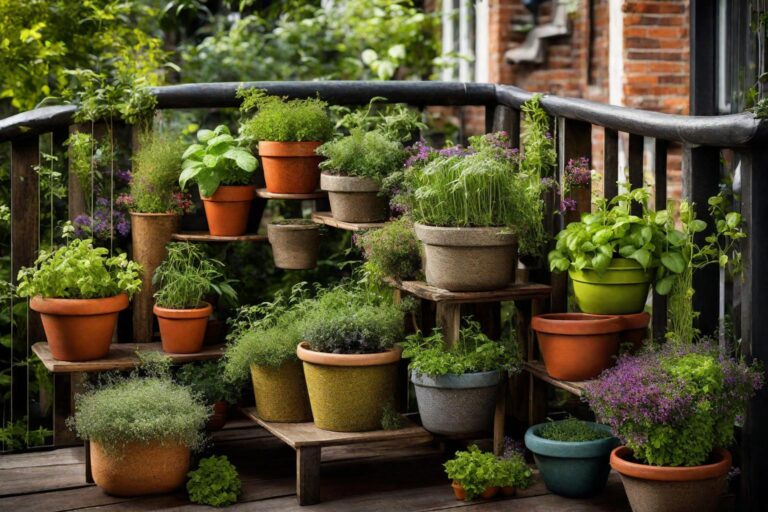
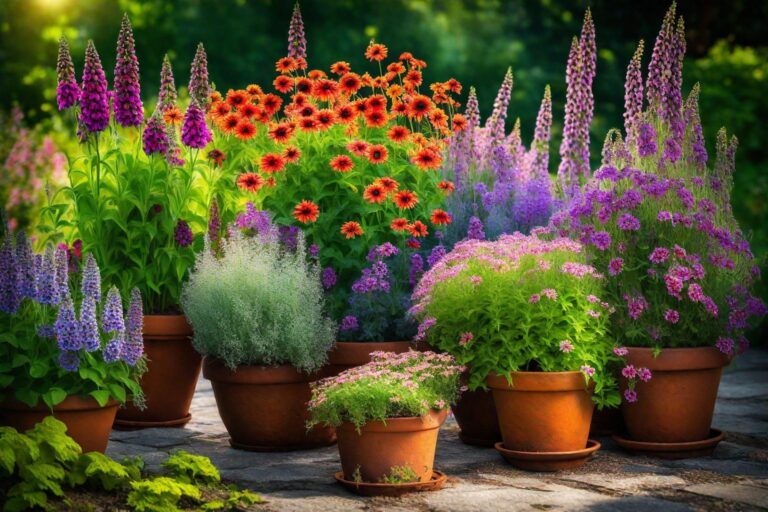
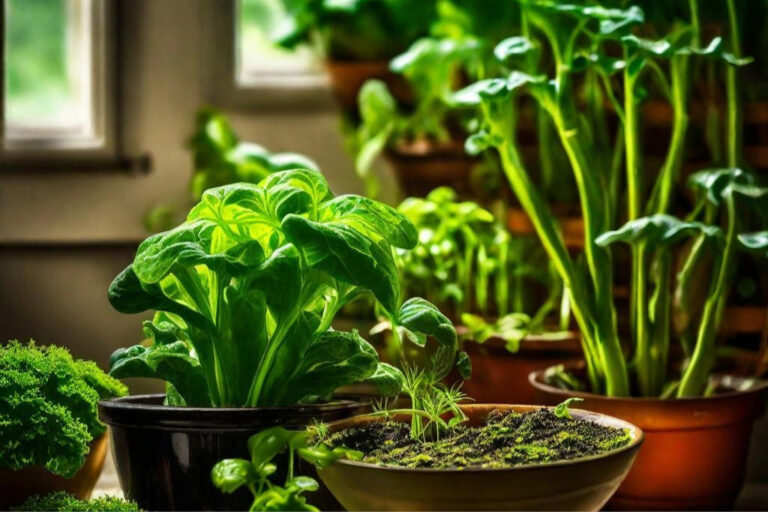
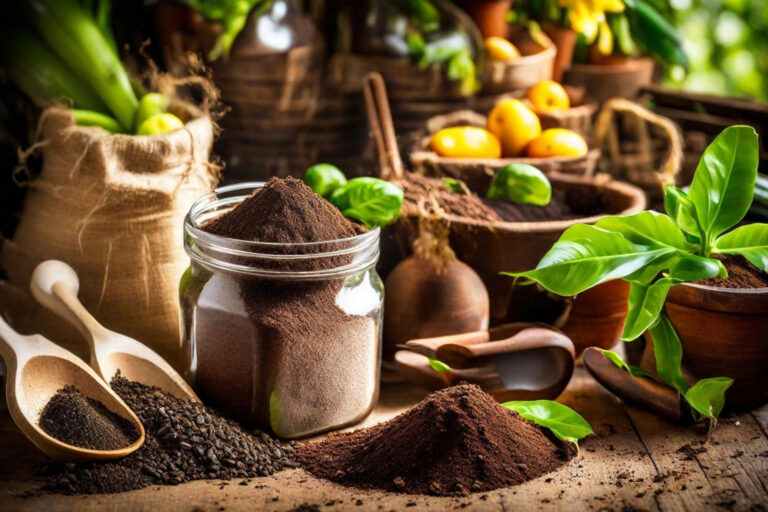
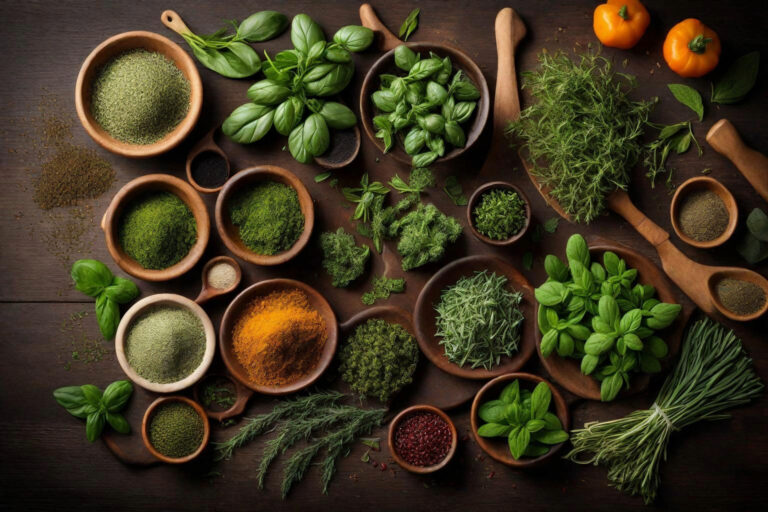
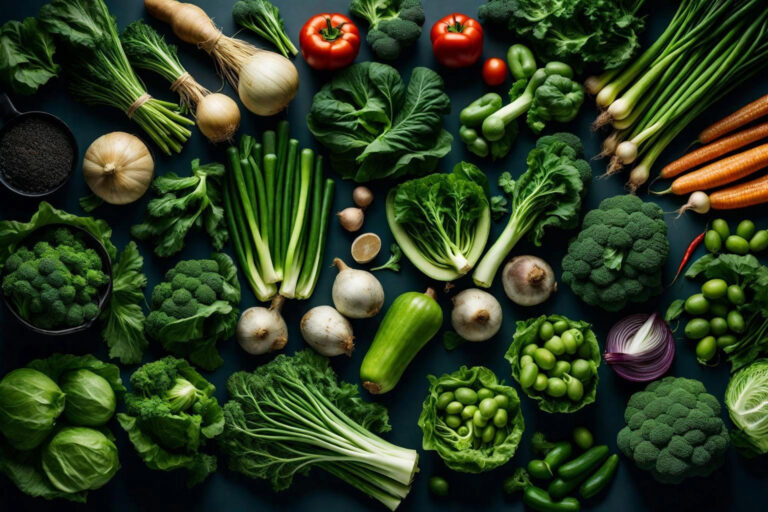
One Comment